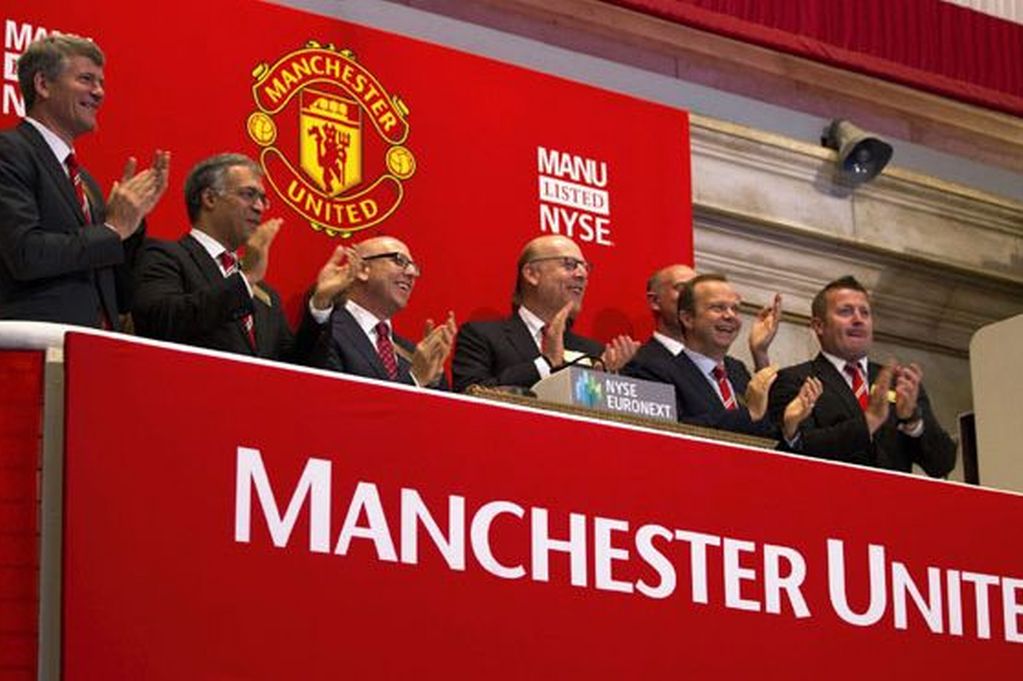Manchester United itself set out in plain language the importance of Alex Ferguson when the Premier League soccer club floated on the New York stock exchange last year.

This theory will now be tested after 71-year-old Ferguson, the combative Scotsman who has become the most successful manager in the history of English soccer, said he was retiring this month after 26 years in charge of the team.
United gave no word on who will take over, although attention focused on the charismatic Portuguese Jose Mourinho who had been tipped to return to the Premier League with Chelsea from his post at Real Madrid.
David Moyes, a quietly spoken Scotsman who has turned Everton into a Premier League force on limited resources, was another leading contender, according to bookmakers.
United executives have previously said that planning was in place for a succession when needed but gave no details.
They will want to avoid a replay of the early 1970s when the departure of manager Matt Busby, who took the team to their first European Cup triumph in 1968, was followed by a decline and brief relegation to the second tier.
Ferguson will retire on a high after leading the club to a record 20th English league title, the 13th time they have been champions since the Premier League was formed in 1992.
Under Ferguson, United have grown into a global brand that claims to have 650 million followers around the world.
In the statement announcing his retirement Ferguson singled out Bobby Charlton, a United star from the 1950s to the 1970s who later joined the board, for thanks.
“In my early years, the backing of the board, and Sir Bobby Charlton in particular, gave me the confidence and time to build a football club, rather than just a football team,” he said.
Players such as David Beckham and Cristiano Ronaldo have come and gone, but Ferguson has been a constant presence on the touchline at Old Trafford for more than a quarter of a century, urging on his players and raging at perceived injustices.
TAPPING PREMIER LEAGUE GROWTH
Having made his mark managing Scottish team Aberdeen, Ferguson struggled to make an impact after joining United in 1986. He did not win a major trophy there until they lifted the FA Cup in 1990 but after that, the floodgates opened.
United had always enjoyed a big following across Britain, capturing the hearts of many neutrals as Busby rebuilt the club after the 1958 Munich air disaster in which eight players died.
United’s growth as a business since the 1990s has coincided with a huge surge in interest in the Premier League at home and abroad. English soccer got itself lucrative new television deals, smartened up its stadiums and became fashionable again as it put the dark hooligan days of the 1980s behind it.
United’s sporting success and rich history left them perfectly placed to exploit that interest. The club blazed a trail by floating on the London stock market in 1991, where they remained until they were bought out by the American Glazer family for 790 million pounds ($1.22 billion) in 2005.
Some United fans have never forgiven the Glazers for loading the club up with debt and making it harder to compete with clubs like Chelsea and Manchester City, funded respectively by Russian oligarch Roman Abramovich and Abu Dhabi’s Sheikh Mansour.
Ferguson’s man management and mastery of tactics helped United to remain at the top in the Premier League despite the deeper pockets of rivals.
United’s potent brand has also enabled it to do sponsorship deals around the globe to help pay the salaries of players like Robin van Persie and Wayne Rooney.
With Chief Executive David Gill also stepping down this summer, it’s suddenly all change at the club.
“The biggest challenge for United will be when the time comes for a new manager – whenever that may be,” Dan Jones, head of the sports business group at Deloitte, said last month after United won the league.

